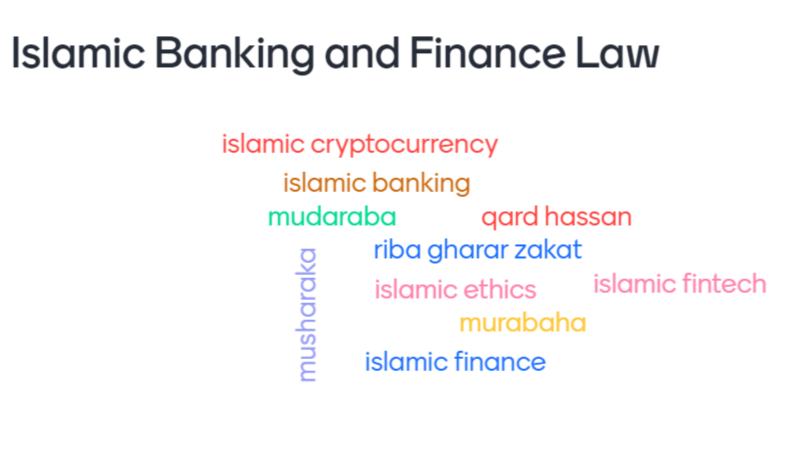By Wyon Sandells,
Edited by Sanaa Kadi
Under the principles of Islamic Finance, the prohibition of riba (usury) reigns supreme due to it going against the Qur’an and Sunnah. As a result, Islamic finance has developed alternative methods to allow investors to profit.
An example of this is Murabaha, which is ‘a sale of an item to a buyer where the seller expressly mentions the cost, they have incurred on the commodities to be sold and sells it to another by adding…[a known] profit or mark-up’.[1]
However, when the customer defaults with English law governing, it is followed instead of Shari’ah, thereby not allowing the buyer to default (while allowed under Shari’ah). This can best be seen in the case of Shamil Bank of Bahrain and Beximco Pharmaceuticals of Bangladesh, where a Murabaha agreement, although containing a clause that said that it would be ‘subject to the principles of the Glorious Shari’ah…[and] governed by and construed in accordance with the laws of England’, the court solely enforced English law, holding that it was not possible to apply Shari’ah.[2]
This, therefore, raises the question of if Shari’ah is not followed, then why does English law govern Islamic financial contracts?
To understand this, it is necessary to state both art.9 of the European Convention of Human Rights (implemented under the Human Rights Act 1998), and s.19 of the Equality Act 2010.
Art.9 allows ‘Everyone…to manifest his religion or belief, in worship, teaching, practice, and observance’, while s.19 prohibits ‘a provision, criterion, or practice which is discriminatory in relation to a relevant protected characteristic’ (Religion and Belief being one under s.10).
Therefore, to ensure an impartial system, since 2001, there have been several UK Government and Financial Conduct Authority (FCA) initiatives to establish English law as an international Islamic financial legal system.[3] An example being a working group that reformed the Finance Act to facilitate Murabaha by removing a double tax charge which taxed both the acquisition and sale of a good.[4]
These reforms lead to the development of an alternative financing system, allowing English legislative and regulatory measures to facilitate Shari’ah-compliant transactions,[5] while also encouraging more ‘investment’ and economic growth at the national level.[6]
However, although the ideas behind this system, originate from Shari’ah, it is still English law, and therefore does not permit the use of Shari’ah’s legal sources. This is by design and not by choice, as the government states that it is ‘a secular regulator’,[7] which ensures that ‘all financial institutions…are subject to the same standards…[regardless of] their religious principles’.[8]
As a result, a paradox exists as, while the government cannot assist in ensuring that transactions are Shari’ah-compliant, its courts are not permitted to enforce Shari’ah law as the governing law. This is to avoid going against the ECHR and Equality Act. However, by refusing to enforce Shari’ah law, the government is effectively prioritizing English law over Shari’ah law, which may be viewed as a violation of the ECHR and Equality Act, thereby creating a complex legal landscape for Shari’ah-compliant finance in the UK.
Bibliography
Fielding S, ‘Mediation in the Church of England: Theology and Practice’ (2010) 13 Ecclesiastical Law Journal 69
REDmoney, The Islamic Finance Handbook (John Wiley & Sons 2014) 535
Gov.uk, ‘Practice Guide 69: Islamic Financing’ (GOV.UK) <https://www.gov.uk/government/publications/islamic-financing/practice-guide-69-islamic-financing> accessed on 24th February 2023.
[1] ‘Practice Guide 69: Islamic Financing’ (GOV.UK) <https://www.gov.uk/government/publications/islamic-financing/practice-guide-69-islamic-financing>.
[2] REDmoney, The Islamic Finance Handbook (John Wiley & Sons 2014) 543-544.
[3] REDmoney, The Islamic Finance Handbook (John Wiley & Sons 2014) 540.
[4] REDmoney, The Islamic Finance Handbook (John Wiley & Sons 2014) 540.
[5] REDmoney, The Islamic Finance Handbook (John Wiley & Sons 2014) 541; Stephen Fielding, ‘Mediation in the Church of England: Theology and Practice’ (2010) 13 Ecclesiastical Law Journal 70.
[6] REDmoney, The Islamic Finance Handbook (John Wiley & Sons 2014) 542.
[7] Stephen Fielding, ‘Mediation in the Church of England: Theology and Practice’ (2010) 13 Ecclesiastical Law Journal 73-74.
[8] Stephen Fielding, ‘Mediation in the Church of England: Theology and Practice’ (2010) 13 Ecclesiastical Law Journal 73.
